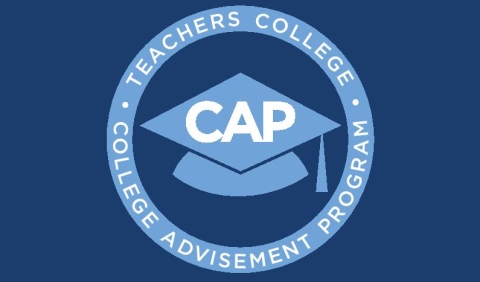Dates: September 12 - December 11, 2025
Format: Asynchronous Online Modules
Price: $500
Group/Team Discount (10 or more): 20% off the registration fee, please contact tcacademy@tc.columbia.edu to register
For more information, questions or to register: Email tcacademy@tc.columbia.edu
Please Note: This course is offered on a non-credit basis or for 3 credits. Registration for this course through TC Academy is for the non-credit offering and Academic Credits will not be awarded. For instructions on how to register for the for-credit offering, contact the Counseling Psychology department. This course can be taken for credit in accordance with TC's enrollment policies. If you are not a current student and would like to take this course for credit, please review the Non-Degree Application Instructions page on our website and proceed accordingly. Also, please note that if you plan to take this on a for-credit basis, college tuition and fees will apply.
Riddhi Sandil, Ph.D.
I received my Ph.D. in Counseling Psychology from the University of Iowa and am currently serving as the Program Coordinator of the Ed.M. program in Psychological Counseling at Teachers College, Columbia University. I believe that there are multiple factors that impact human adaptation. Biological predisposition, social context, psychological health, availability of choices and freedom and the ability to exercise personal privilege influence an individual's life path and overall well-being. As a researcher, whose professional and personal identity is strongly influenced by multiculturalism and social advocacy, I am interested in understanding how these factors interact and predict psychological health. My scholarly interests lie in the pursuit of evaluating bio-psycho-social factors and their impact of individual differences and self-determination.
Furthermore, I am a licensed psychologist and my clinical interests include complex trauma, working with marginalized/minority populations, women's concerns, identity development, individuation and family of origin concerns. I approach my personal and professional life from a relational, feminist and multicultural framework and enjoy developing mutually empowering and empathic relationships with others. In my free time, I enjoy independent cinema, spending time with loved ones and pop culture.
Learning Objectives
Participants will:
- Develop fundamental skills and knowledge of college advising processes
- Learn to develop and implement a comprehensive college advisement program that increases opportunities for underrepresented students
- Explore the impact of their values, assumptions, and life experiences on their counseling work with students and parents/guardians
- Develop an understanding of the variety of ethical situations that can arise during college advisement as well as how to effectively resolve them
- Learn how to support college-ready, low-income students in entering postsecondary intuitions
- Learn how to support underrepresented students in attending postsecondary intuitions that match their academic abilities
- Leverage their knowledge to support students in applying for financial aid, scholarships, and college mentor programming
- Create practical materials that could be directly used in a college counseling office
Who Should Attend
This program is opened to interested participants who are currently pursuing a school counseling degree, professional school counselors, college access professionals, and community stakeholders who would like to deepen their understanding and gain specialized training in the topic of college advisement with a special emphasis on high-achieving students with great financial need.
Upon Completion
Participants who complete the 12 modules during the specified enrollment period will receive a Certificate of Completion awarding 3 Continuing Education Units (CEUs) or 30 Continuing Teacher Leader Education units (CTLEs).
Any attendee who is taking this course for CTLE credit for NY State must enter their name exactly as it appears on the TEACH website in accordance with NYSED requirements.
Course Details
Modules
Through didactic instruction, research based curriculum and readings, peer and experiential learning and practical “hands on” training, the program’s modules and discussions will center around important information needed for working with students in the college process, including:
- Overview and Introduction to College Admissions Counseling
- Role of the College Counselor
- Cultural Competence- Individual and Systematic Counselor Cycle
- Creating a College Counseling Program
- Ethical Issues and Decision Making Models
- Developmental Theories
- College Matching
- Components of the Application
- College Entrance Exams
- Letters of Recommendation
- Navigating Financial Aid
- Metrics for College Access and Success
- Serving Specific Populations:
- Students of Color
- Undocumented Students
- First Generation Students
- Homeless Youth
- Students in Foster Care
- Student Athletes
- Military Academics
- Students with Disabilities
Assessment Methodology
Students in TC-CAP are assessed on their participation in class discussions, completion of course activities, and submission of assignments. Students are provided rubrics to understand the how participation and assignments are measured and evaluated. There are also opportunities for the students to test their own understanding through various quizzes developed using the tools of the online space.
Students will receive feedback and individualized comments on their submitted assignments, including discussion board comments and other written assignments. This feedback will be provided by course instructors, course facilitators, and/or teaching assistants. Feedback will be uploaded to Canvas, the Learning Management System, approximately one week after the assignment is submitted. To receive a certificate of completion, participants must demonstrate satisfactory learning by earning a 70% or higher in the course.

